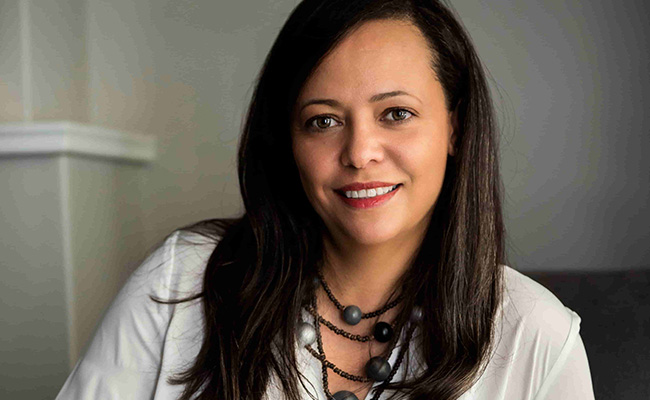When Kennedy Bungane walked away from banking in 2012, few imagined he would be back.
After two decades rising through the ranks at Standard Bank to become CEO of Corporate and Investment Banking and later taking the helm at Barclays Africa’s investment arm, he stepped away for what he calls “a sabbatical in the ring” as an entrepreneur and investor.
“I had to answer a question that gnawed at me. Am I a one-trick pony? Is banking the only thing I can do?” he says. “Those five years running Phembani Group [an investment group founded by Phuthuma Nhleko], building it into the biggest black industrial group in the country at the time, scratched that itch. But deep down, I knew I had unfinished business in banking.”
That unfinished business is African Bank, a banking group that looks set to return to the JSE in the next two years. Founded 50 years ago by entrepreneurs for entrepreneurs, it has twice been brought to its knees by curatorship.
Bungane calls the new incarnation of African Bank “a mission manifesting as a bank”, and a platform to finish what he started in 2003 when he helped draft the Financial Sector Charter, designed to help banks, insurers and finance firms transform.
“Twenty years later, with every bank a BEE level 1, we still have underserviced entrepreneurs, [small businesses] without true financial partners, and communities locked out of the economy,” he says. “African Bank’s DNA is about the middle to bottom of the pyramid. Households, small businesses, people on the periphery.”
This, Bungane says, is the missing piece he came back to find.
But don’t think the revival of a brand felled by major strategic missteps, which made many investors very poor when the South African Reserve Bank placed it under curatorship in 2013, has been easy.
When Bungane took over in 2021, African Bank’s biggest deficit was not on the balance sheet; it was trust. He took over from Basani Maluleke who blew phoenix air into the lender when it was staring into the abyss, before she left to join the bank’s arch nemesis in Stellenbosch, Capitec.
Essentially, the bank had been split into the “good bank” which forms the modern day African Bank, and the “bad bank”. But Bungane says to rebuild trust and credibility, he set about repaying those investors who had lost out.
“We took our responsibilities to the old bank seriously,” he says. “We have paid back almost R8bn to senior debt holders, to their surprise, and kept paying subordinated debt. That mattered.”
The reputational revival wasn’t premised on debt repayments alone. The bank did much to reposition itself around its 50-year heritage, reclaiming its founders’ purpose.
“This bank did not start with the last curatorship. It started as an act of economic defiance. A bank for the people, by the people. That is why it refuses to die,” Bungane says.
Perhaps the most surprising part of it is that customers have responded so positively to this mission – no small ask in a country where start-up challengers like Discovery, TymeBank and Bank Zero are doing well to snaffle market share from incumbents like Capitec.
Back in 2021, African Bank served 1.1-million personal loans customers. Today it has 6.1-million customers, with 2.3-million transactional accounts and 1.5-million depositors. Assets have doubled to nearly R50bn in those four years.
“People are voting with their feet,” Bungane says. “They believe in the idea of their bank.”
‘We’re not here for trophies’
So how has the bank done all this? In part, the answer is acquisition.
In recent years, African Bank has bought Grindrod Bank for R1.5bn, Sasfin’s capital equipment and commercial property finance units for R3.2bn, and it made a R5.7bn bid for Eskom’s staff home loan book, which is expected to close later this year.
These deals speak to more than ambition; it’s a shift from unsecured lending to a broader mix of business, property and home loans, strengthening its position ahead of its return to the JSE – something which JSE CEO Leila Fourie, for one, is looking forward to.
However, Bungane scoffs at the idea that African Bank’s acquisition spree is an unfiltered tilt at anything on the market. “It is not Pac-Man,” he says with a laugh. “We are not gobbling everything up. We are building a fully-fledged personal, business and commercial bank by acquiring capabilities, not trophies.”
Acquisitions in banking can be pretty hard. In the case of Nedbank, its takeover of BoE in 2002 nearly felled that bank, requiring a rights issue from its then majority owner, Old Mutual.
But in African Bank’s case, the integration has been swift. Four banks have been merged in under three years – and this has borne immediate fruit in terms of profit and market share.
Bungane attributes this to the fact that African Bank doesn’t have the legacy technology of many of its peers, which has made it more agile. “Not having massive old core systems is our superpower. We can plug and play new capabilities fast instead of ripping out 40-year-old plumbing.”
The results are clear. For the six months to April, African Bank’s net profit hit R202m – a 15% rise from the previous year’s R176m. Dig deeper, and you’ll see a 39% jump in non-interest income to R909m as customers began transacting to a greater extent. The interest income grew 6% to R3.7bn, boosted by the growth in the business and commercial banking business.
Credit impairments – which caused the 2013 nadir when bad debts soared – improved 10% to R1.22bn, with the credit loss ratio dropping to 5.3% from 6.6%. This suggests that while the bank is still taking on risk, the trajectory is going the right way.
Not the finished product
While the signs are positive, there is still some way to go.
For one thing, it’s not cheap building a new bank: operating expenses rose by 16%, reflecting investments in data and digital capabilities, particularly on the personal and business banking side.
Prospective investors will want to see its cost-to-income ratio come down, which seems likely given that much of its spending on technology had to be paid upfront.
Equally, the bank’s rapid expansion into business banking brings with it the risk of higher impairments if economic conditions worsen. Maintaining credit quality while growing the loan book will test its risk management discipline.
And then there’s the competition factor. While Discovery and Capitec have been particularly aggressive, the Big Four banks continue to dominate corporate relationships and enjoy economies of scale that African Bank is still building. Winning market share from both ends of the spectrum will require African Bank to keep innovating – and spending.
Finally, the crucial question is, can it regain and retain the trust of customers, business clients and investors – something that was left for dead during the ruinous last few years under former CEO Leon Kirkinis. It’s a shadow that is hard to shake.
Bungane, however, is convinced the new-look African Bank is built to last, and will be able to deliver growth over years, not just incremental quarters. “The South African banking industry is world class, [within the] top three globally for innovation and resilience. Competing here keeps you sharp. But our focus is clear: obsess over the customer the others overlook,” he says.
He can at least point to numbers that are going the right way, but Bungane is after something deeper: a lasting change in the industry’s relationship with entrepreneurs and underserved communities.
“If we get SMEs banked properly, we unlock jobs, growth, and real transformation,” he says. “That is not charity. That is nation building. And for me, that is the business I came back to finish.”
If he can offer something different and compelling in that small business niche, the new African Bank could be a savvy investment prospect indeed.
Top image: African Bank CEO Kennedy Bungane. Picture: supplied.
Sign up to Currency’s weekly newsletters to receive your own bulletin of weekday news and weekend treats. Register here.













